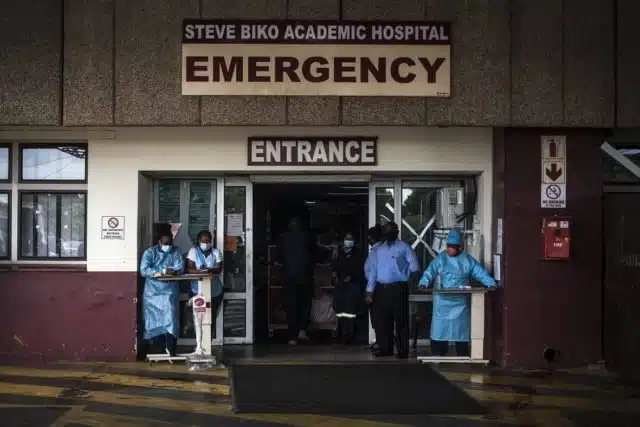
Health ombudsman says South Africa’s NHI is a ‘necessary evil’
South Africa’s health ombudsman, professor Malegapuru Makgoba says that South Africa’s plans to introduce universal healthcare through the National Health Insurance (NHI) scheme are fraught with hurdles and may not be implementable at the pace that the government wants.
Presenting to the portfolio committee on health this week, Makgoba said that his office has dealt with a host of complaints over the last financial year across all provinces, and through inspections of health facilities, his office found that the picture for healthcare in the country is not good.
He said that complainants would often describe healthcare facilities as being in a mess, and that service levels are not conducive to effective care.
“Over the last 12 months, I have visited every province…the levels of healthcare in the country are deteriorating,” he said. “While we are preparing for the NHI, we don’t seem to be raising the standards of the service delivery to the population.”
Makgoba said that, of the nine provinces he visited, the only province that seems to have its ‘act together’ is the Western Cape.
“They seem to understand their mandate and want to serve the people of the Western Cape. The other provinces are in difficulty, and they need to be called upon to jack up their work,” he said.
When pushed for clarity on his comments around the levels of healthcare on the NHI, Makgoba said that “as things stand today, we couldn’t go into the NHI with the level of inspections and certification we have done so far because I suspect most of the hospitals will not meet the high standard required of the NHI.”
However, he stressed that this doesn’t mean that the plans should be abandoned. “It doesn’t mean we should stop trying – this is an important project of the new government. We should all put our effort into it,” he said.
Makgoba noted that he worked in the National Health Service in the UK for 15 years – and that universal health coverage is an appealing prospect.
“This is the right way to go. South Africa deserves to implement a system like the NHI. I strongly support it – it will bring health equity.”
But his observations show that, while there are pockets of good, there are many issues – in Gauteng and Limpopo in particular – that give rise to troubling complaints over service delivery.
Despite this, “the NHI is a necessary evil we must swallow,” he said.
Full steam ahead
The government has made it clear that its pursuit of the NHI will continue despite criticism from the private health sector, medical aids, and warnings from Treasury and the department of health itself.
In September, minister of health Joe Phaahla said that the plans to roll out the NHI in phases will proceed, despite a High Court ruling declaring parts of the National Health Act unconstitutional.
Private healthcare groups believe that the scheme is unsustainable and unmanageable, given the scale of what the government wants to achieve against the backdrop of how it has already failed in the public healthcare space.
There are also concerns over an exodus of healthcare professionals who refuse to be subject to the scheme’s harsh conditions, as evidenced by the court ruling the department is appealing.
Medical aids have been fighting for their continued existence, given that the NHI scheme envisions a healthcare system with the state entirely in control and little to no room for private healthcare funding.
Treasury’s warnings come from a financing standpoint – there is simply no money to feed into the scheme without raising taxes.
Finally, the Department of Health has raised red flags over the scheme’s administration, conceding that it is vulnerable to maladministration and mismanagement.
Read: Court ruling won’t stop NHI plans for South Africa: minister



